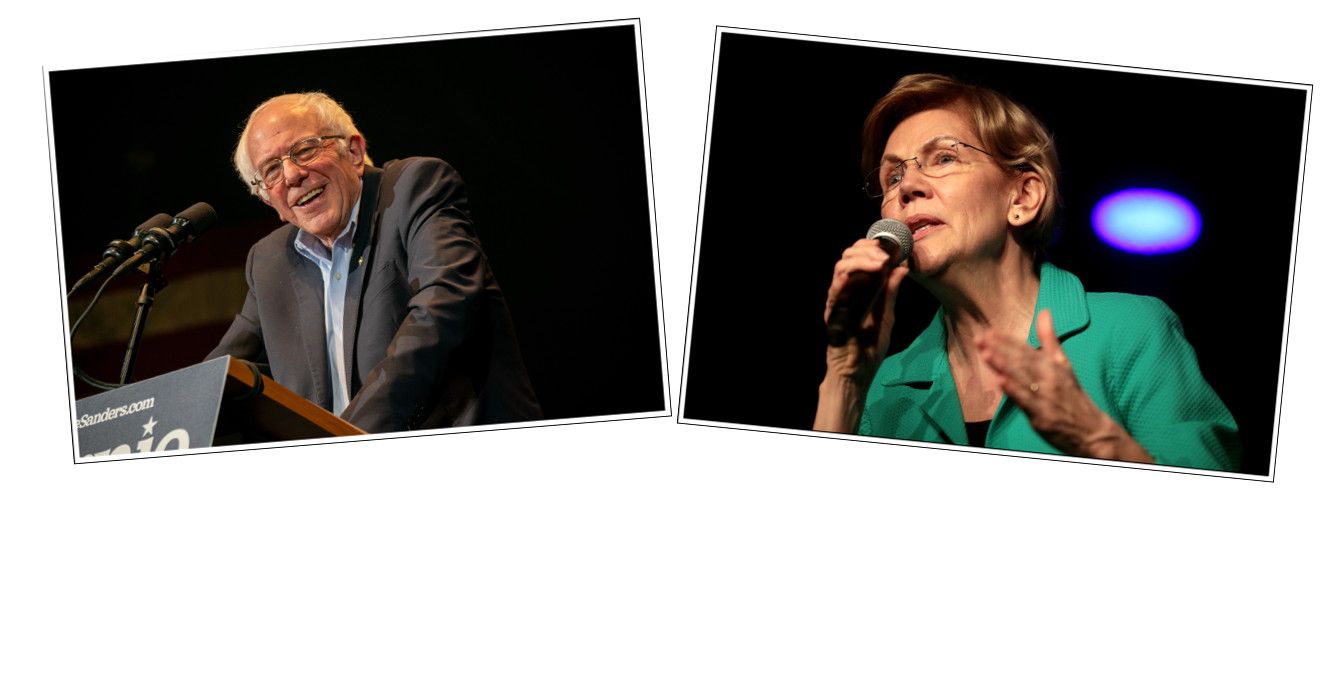Sanders or Warren?
Establishment Dems are trying to force a brokered convention to block Bernie Sanders from becoming the nominee. How does Elizabeth Warren fit in?

As progressives go to the polls in the next few weeks, many must be weighing their options. Will it be Sanders or Warren?
We know the establishment Dems are trying to force a brokered convention in which the superdelegates would be able to vote, in order to block Bernie Sanders from becoming the nominee. The problem is that if Sanders arrives at the convention with a plurality of votes, as is currently looking likely—in other words if he wins the popular vote—and then does not receive the nomination, his supporters are going to be understandably irate. At best, that would probably lead to defeat in the general election, and might lead to the disintegration of the Democratic Party.
Is the Democratic establishment stupid enough, or self-serving enough, to deny Sanders the nomination if he wins the most votes? Would they rather lose to Donald Trump in order to maintain control of the party? Sadly, we have to admit that we don’t know the answer to that question.
Where Elizabeth Warren fits is unclear. Polling in the 10–15% bracket nationally, and having done poorly in Iowa and New Hampshire, it seems extremely unlikely that she will win the primary. In a brokered convention, will she ask her delegates to support Sanders, throwing her weight behind the progressive cause? Or, will she back a moderate? Which of the establishment candidates would she support? Bloomberg, Buttigieg, Biden, Klobuchar? They all seem pretty odious. It’s hard to imagine.
Or, is her plan to present herself as the compromise candidate, that can unify the party, bridging the gap between progressives and the establishment? Frankly, that won’t fly. A compromise candidate is not going to generate the level of excitement necessary to beat Trump. Try saying the word silently to yourself: “compromise.” Feel excited? No. It would be pretty hard to convince Democratic voters to back a candidate who arrived at the convention with only 10–15% of the delegates.
For progressives, the tactic in the primary should be to get Sanders to 50% so they’re not forced into a brokered convention; or to get him as close to 50% as possible, making it more difficult to deny him the nomination.
For that reason, voting for Warren is unnecessarily risky. We don’t know what tricks the DNC will attempt. Essentially, one is putting one’s faith in her to do the right thing when the voting goes to a second round that includes superdelegates. That’s not really necessary, because if Sanders is your second choice you can just vote for him now, you don’t need Warren to be your proxy later at the convention.
[Photo Credits: Gage Skidmore (Warren), Joshua Mellin (Sanders)]
